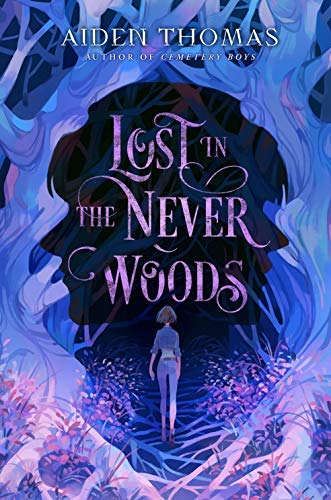 Aiden Thomas's Cemetery Boys was one of my favorite books of the year in 2021, so I'm not sure why it took me so long to pick up Lost in the Never Woods, his gorgoous, YA, modern retelling of Peter Pan. Wendy has basically been surviving since she and her brothers disappeared five years before. She returned after a few months, dressed in strange clothing, with no memories of where she'd been, but there's been no sign of her brothers. She and her parents have avoided talking about the tragedy, and Wendy has come to exist in solitude except for her best friend, just waiting for the day they can go to college and escape the absence her brothers have left. Recently, though, kids have started disappearing, and Wendy has to work harder not to think about those missing months. One night, Wendy is on her way home from work and decides to take a short cut through the woods, despite her parents' warnings against them, and she nearly hits a boy who looks just like the face she's been compulsively drawing for months. Thomas's decision to shift this retelling to Wendy's point of view works beautifully, allowing the author to consider grief and recovery as well as the inevitable transition into adulthood. His curation of that original story, the details he included and those he transformed, are just delightful.
0 Comments
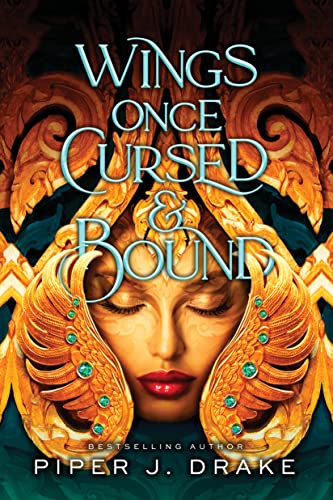 Thanks to partners NetGalley and Sourcebooks Casablanca for the digital ARC of Piper J. Drake’s Wings Once Cursed and Bound. The book will be published on Tuesday, April 11! Somehow, in the two months since I requested Piper J. Drake’s Wings Once Cursed and Bound from NetGalley, I completely forgot what it was about . . . and I actually recommend that you go in the same way. It was so much fun to discover this one, starting with a blank slate. With that said . . . here’s a brief synopsis: Wings Once Cursed and Bound is a blend of romance and fantasy, focused on the paranormal, including vampires and werewolves and fae and also kinnaree (Thai bird princesses) who walk among us. Peeraphan Rahttana knows she is at least part kinnaree but hasn’t let the fact change her life. She’s a dancer hoping to find success as she pursues her passion. Then, one day, her frenemy gives her a pair of red shoes, and Peeraphan (also called Punch) is drawn into a legend outside of her experience. Her powers give her some ability to resist the curse of the shoes, but she’s still noticed by Bennet Andrews, a vampire who’s sworn to recover them before they do any more harm. As Bennet works to take the shoes, he’s also drawn into helping Punch. The vibes here are akin, at first, to Twilight (which I enjoy, so that’s not a bad thing!). They do quickly become more adult, but the romance between the immortal Bennet and the partly-human Punch develops as Bennet tries to resist and Punch becomes more determined to remove the walls between them. This is the first book in a planned series called Mythwoven, so there’s a good bit of world building here, the introduction of a large cast of characters who I can only hope will be at the center of the future books. I enjoyed the way Peeraphan’s exploration of her kinnaree identity was anchored in her consideration of her Thai culture, and there’s a nice surprise as she reconnects with an unexpected family member (that happens early!). 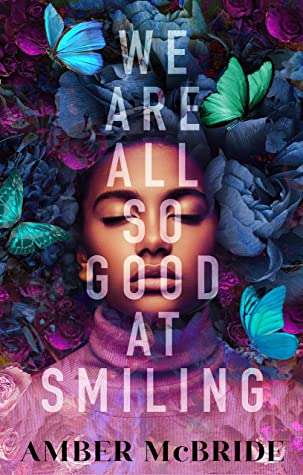 Thanks to partners NetGalley and Macmillan USA for the digital ARC of Amber McBride’s We Are All So Good at Smiling. The book will be published on Tuesday, January 10! Amber McBride’s We Are All So Good at Smiling is a sort of allegorical novel in verse that draws from the author’s own experiences with clinical depression. She begins her book with a note to the reader, cautioning about its potential triggers, which I advise all readers to consider. The book is about Whimsy, who has been struggling with clinical depression since she was young, when her older sister—her idol—disappeared. She has been in and out of hospitals and programs since that time, working through her sense that things in her world just are not right. She’s always been a collector of fairy tales, a passion that began with her grandmother, and she often uses them both to understand the world around her and to escape, even briefly. Her situation changes when Faerry joins her program, sharing his own story, which they soon realize holds many parallels and connections to hers. As Whimsy and Faerry get to know each other—his family moves into her neighborhood, and he enrolls at her high school—their mutual understanding begins to make a difference for each. But as they start to uncover the truths that have been hidden from them, they realize that the battle that lies ahead may be more perilous than anything they’ve been through. The key part of the novel takes place in the forest at the end of their neighborhood, which Whimsy has always avoided, fearful of its secrets. When Faerry is lost in the forest, however, Whimsy becomes determined to find him, to save him, and to confront the fears that have plagued her. As in her debut, Me (Moth) (a book that I absolutely loved), McBride’s verse is gorgeous and evocative, and I appreciate her vulnerability in sharing her own experiences, which I have no doubt will be valuable for so many readers. While We Are All So Good at Smiling certainly addresses important issues, it did not quite live up to my expectations: I liked the idea of the allegory more than its execution. Still, We Are All So Good at Smiling is a compelling book dealing with a topic of vital importance to so many people—particularly teenagers. It is powerful both in Whimsy’s own story, in the ways that her relationship with Faerry helps her, and in its consideration of how the teenagers’ families deal with their mental health. I love the consideration of the ways that stories can help both to understand the world and to offer the tools that people need to make a change or confront a difficult truth. I look forward to following McBride’s career. 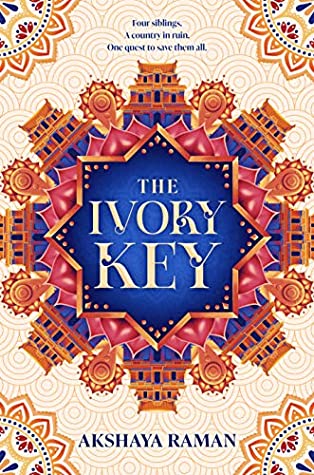 Thanks to partners NetGalley and Clarion Books for the digital ARC of Akshaya Raman's The Ivory Key in exchange for an honest review. The book will be published on Tuesday, January 4! Akshaya Raman’s The Ivory Key is part family drama, part fantasy, part adventure. It centers on four siblings in the kingdom of Ashoka who have been driven apart by the pressures of ruling their country. Riya fled her family’s control after a horrible fight with her mother and now lives with a group of thieves called the Ravens who try to move magic, the true wealth within Ashoka, from the hands of those with privilege to those in need. Riya’s twin Ronak has vowed to gain freedom for himself and for his brother Kaleb, to leave Ashoka by any means necessary, even if it means betraying his family. Vira became the maharani after their mother’s murder and bears the great burden of that responsibility. One of her actions was to allow Kaleb, their half-brother, to be accused of conspiring in their mother’s death; he’s been imprisoned ever since. Raman alternates between each sibling’s point of view, and she does some excellent character- and world-building early in the book, so readers have a rich sense of each sibling’s motivation and of the intricacies of their realm. In Ashoka, magic is mined from the ground, and there are legends that drive the way magic is venerated. Magic was first found by the family’s ancestor, and she gave it away to neighboring countries as a way to build connections and protect their society. That action forestalled any need from other kingdoms to invade or to try to grab the magic for themselves. As magic has dwindled, however, threats from within and outside of the kingdom have weakened every part of Ashoka, including the royal family. Though it seems their conflicts can’t be overcome, the four siblings are drawn together by their dead father’s search for the Ivory Key, which their family legend says could unlock other mines, thus resurrecting their access to magic, their protection from invaders, and their ability to keep peace for the kingdom both inside and out. I loved the sense of a team here, one in which each member has different skills, and I appreciated what those skills reveal about each sibling’s relationship with their parents. Their father created challenges for them constantly, which nurtured each ability (one wields magic, one is most adept physically, and so on). There’s also a vivid look at what the power of their position can do to teenagers: Riya fled; Vira denies her own personality and emulates their mother to her own detriment; Ronak considers betrayal; and Kaleb gives in completely to the unfairness of the ruler’s—his sister’s—decisions, surrendering all hope. The Ivory Key is quite complex and is the first in a duology, so it lays out their situation patiently and spends time on details of the world. I love the backstory and the way that we see how close the siblings were before power drove them apart. I’ve seen it compared to The Gilded Wolves, which makes sense to me, though there’s less of a focus on heists through the early parts of the novel, and I also thought more than once of the siblings in Succession who are both beneficiaries and victims of power and greed. This is a confident, compelling debut. Now I just have to settle in to wait for book two! 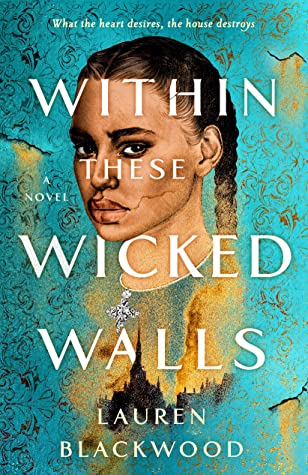 Thanks to partners NetGalley, St. Martin's Press, and Wednesday Books for the digital ARC of Lauren Blackwood’s Within These Wicked Walls in exchange for an honest review. The book will be published on October 19! Those of you who follow me know that I love a new version of a classic, and I’m particularly a sucker for a Jane Eyre retelling, so when I saw that there was a Jane Eyre retelling set in Ethiopia with a fantasy twist, I requested immediately. Wow, did Lauren Blackwood’s Within These Wicked Walls satisfy my every hope and expectation! This book does what the best retellings do: it takes its source material as inspiration and then spins out a new story and a new world. Here, the Jane character is Andromeda, a debtera—a type of exorcist—who can cleanse homes of the Evil Eye. In desperate straits after her mentor cast her out, Andromeda takes on a job at which ten other debteras have failed. She’s employed by the mysterious Magnus Rochester who lives in near-solitude at the far end of a desolate desert. All but a few servants and the nanny who raised him have abandoned him, apparently scared away by the curse no one can defeat. We experience the story through Andromeda’s eyes, and what a fabulous protagonist she is. Like Jane, she’s been raised in unusual circumstances, and her values differ from those of her world. She calls herself plain but cares little about her appearance. Instead, she values her strength and skills in her profession and communicates with a blunt honesty that shocks Magnus. He, in turn, is lacking social graces after having grown up as an outsider from his family and from society, so for a while, their bluntness seems to put them at odds. And then, of course, things change. I loved SO much about this story. Andromeda’s narrative voice is so much fun—I love her strength and her defiance of convention. Watching Magnus meet his match in Andromeda is so satisfying, and their chemistry is great. I also, however, appreciated the secondary characters: Saba, the silent and mysterious woman who takes joy in helping others; Jember, the debtera who raised Andromeda, whose complexity I found to be appealing; and even Kelela, the beautiful young woman who is Andromeda’s rival for Magnus’s affections. Most of all, I reveled in Blackwood’s development of the magic behind the curse that Andromeda is fighting. The way it manifests throughout Magnus’s estate is haunting and imaginative and creepy: it preys on characters’ compassion for others and on their unique weaknesses, and watching Andromeda strategize the best way to fight each new Manifestation shows her intelligence, her perseverance, and her strength. I was shocked to find out that Within These Wicked Walls is Blackwood’s debut, and it is certainly a confident, brilliant first novel. I can’t wait to see what she tackles next. 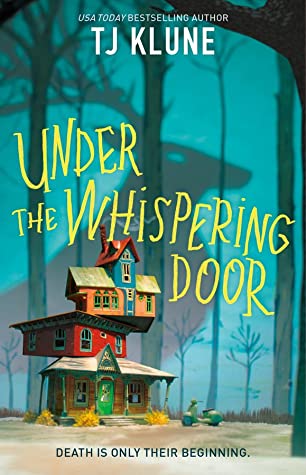 Thanks to partners NetGalley and Tor Books for the digital ARC of T. J. Klune’s Under the Whispering Door in exchange for an honest review. The book will be published on September 21! I cried my way through large portions of T. J. Klune’s Under the Whispering Door. While ultimately, I would call it a beautiful, hopeful book, it is also deeply, deeply sad. I mean, it is about death and the afterlife, so I guess that shouldn’t be a surprise, but I’m just putting that out there. Here’s the setup: Wallace is a horrible Scrooge of a fellow who is financially successful but just a miserable human being. He’s basically alienated everyone with whom he’s ever had a relationship, but he doesn’t even recognize that because he’s so focused on work and power and money. In fact, he takes an odd sort of pride in being needlessly cruel. Then, he dies suddenly of a heart attack. And all of those concerns that consumed his life and his time are gone. The world he enters is populated by an eccentric crew: reapers—in this case, a reaper named Mei; a ferryman named Hugo; and the ghosts of Hugo’s grandfather Nelson and dog Apollo. Wallace is stuck in Hugo’s tea shop until he can accept his death and figure things out and be ready to cross through a mysterious door on the fourth floor. The world building is more complex than I can or should cover, but there are fabulous conversations about Hugo and Mei’s responsibilities to the dead; about what matters in life; about who we choose to be when and if we have the chance to reconsider our choices. I feel as if I should address a big question here since I’ve been raving about The House in the Cerulean Sea since I read it (and that’s a big reason I requested this book!): Under the Whispering Door is NOT The House in the Cerulean Sea, nor does Klune try to make it that book. I always feel as if the expectation game is so fraught, so when I go in with high expectations, I’m almost always disappointed. Did Whispering Door bring me to the giddy heights that Cerulean Sea did? No. But that’s okay. I still found myself thinking and smiling and crying. This book is a success all on its own merits, and for me, it survived the peril of comparison with one of my favorite books of the year.  Thanks to Partners NetGalley and Atria Books for the digital ARC of Shea Ernshaw’s A History of Wild Places in exchange for an honest review. The book will be published on December 7, 2021. I’m a fan of Shea Ernshaw’s YA books The Wicked Deep and Winterwood, so I’m not surprised that I loved A History of Wild Places, her first book for adults, as much as I did. It demonstrates the same talents for establishing and sustaining a unique, unsettling atmosphere and for building a compelling, complex world as those first two books. Ernshaw also has an ability to create complex, intriguing characters to populate her novels. In A History of Wild Places, we start with a book within the book: Foxes and Museums, book one in the Eloise and the Foxtail series, a super-dark fairytale for children. The book’s author, Maggie St. James, has been missing for five years, and Travis Wren—the protagonist of the second layer of the novel—has been hired by her parents to find her. He has an ability to touch objects and then see their memories which has made him valuable to those searching for lost loved ones, but personal tragedy has made him back away from humanity. It’s only as a favor for a distant friend and a desperation for work that has brought him to this search. As he follows her last-known path, he enters an isolated town in search of a mysterious community called Pastoral. Then, the narrative shifts again and relocates into Pastoral itself, where we follow three characters: Theo, a man who is increasingly curious about what lies outside of Pastoral; Calla, who fears the potential consequences of her husband’s questions; and Calla’s sister Bee, a blind woman with abilities that make her valuable to Pastoral’s leader. The shifting nature of truth, of what we think we understand and what lies beneath, mirrors the characters’ own search for identity and truth. It’s a gorgeous novel full of narratives made unreliable because of every character’s limited knowledge. As those disparate pieces come together, I found myself shifting them around, trying to make sense of the way the layers of the story connected. A History of Wild Places is a brilliantly immersive novel, one that I couldn’t stop reading. Ernshaw is definitely an auto-read author for me. 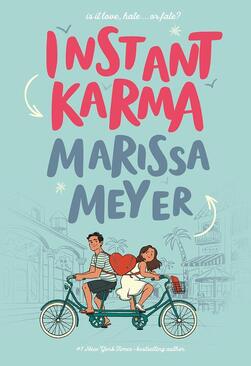 Thanks to Partner NetGalley and Gallery Books for the digital ARC of Marissa Meyer’s Instant Karma in exchange for an honest review. The book will be published on Tuesday, November 3! Marissa Meyer is an auto-buy author for me. I absolutely love her fairy-tale inspired Lunar Chronicles series and stand-alone novel Heartless, and her original take on superheroes in the Renegades trilogy is amazing. So, when I saw that she had a YA rom-com coming out, I instantly requested it. Instant Karma is so much fun. It has a clever premise: sophomore Prudence Daniels has had a frustrating last day of school plagued by an unreliable partner and a low grade on their final project. So, she’s thrilled to go out with her twin brother Jude (yes, all five kids in Prudence’s family are named after songs by The Beatles) and her best friend Ari for a relaxed evening and some karaoke. After Prudence takes a bad fall and passes out, she wakes up with a strange new ability: she can make karma strike in the moment. Prudence, who has a strong sense of responsibility and of right and wrong, has no patience for people who defy rules. So, if someone is putting gum under their table or not picking up their dog’s poop or just being unkind, Prudence is thrilled to have the ability to make sure that person suffers, just a little bit. She can’t however, totally enjoy her new ability because she’s still trying to bring up that final grade. And, since her science teacher is (in Prudence’s eyes) totally unreasonable, he insists that teamwork is the one skill she most needs to learn. She’s still stuck, therefore, with unreliable partner Quint . . . who may not be quite the person she thought he was. Meyer’s touch with magic is light here, but this book is a perfect addition to her catalog of YA books. I love the array of characters who round out Prudence’s life, and Prudence herself (while sometimes frustrating in her lack of self awareness) is a nuanced, thoughtful character. This book is perfect for anyone wanting a sweet, fast-paced read with an emphasis on first love . . . and lots and lots of Beatles references. 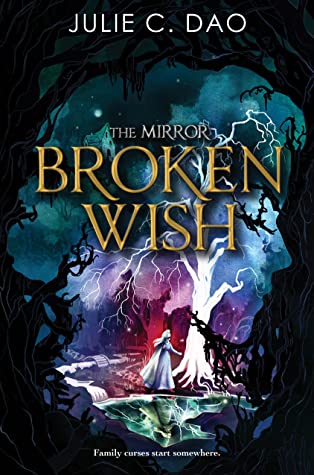 Thanks to Partner NetGalley and Disney-Hyperion for the digital ARC of Julie C. Dao’s Broken Wish in exchange for an honest review. The book will be published on Tuesday, October 6, 2020. Julie C. Dao’s Broken Wish is the first in a series of four YA novels spanning generations of a cursed family. (The authors are heavy hitters: Dhonielle Clayton, L. L. McKinney, and Jennifer Cervantes will round out the series.) I requested this one because it has so many elements I love, including witches and magic and romance. The Grimms appear, and so do magic mirrors and wishing wells. It’s a beautiful tribute to folklore and fairy tales. The book begins with a familiar story: a couple moves into a small cottage in 1840s Germany. The wife, Agnes, befriends a neighbor through baskets and gifts and written notes but hesitates to pursue the friendship because of rumors her husband Oskar has heard. Eventually, though, the two women meet and solidify their friendship, and the solitary woman, Mathilda, offers to help Agnes with her dearest wish, to have a child. She only asks in return that Agnes maintain their friendship. Oskar, however, is opposed--he’s been an outcast before and wants to escape that fate. So Agnes lies to Mathilda and breaks her promise, despite the fact that Mathilda succeeds in helping her fiend. Agnes does indeed have a daughter. Agnes’s dishonesty and betrayal begins the curse. The narrative picks up with the couple’s daughter, Elva, who has a strange magical ability and no knowledge of her parents’ history. Her parents have stayed true to their desperation not to be outcasts and have trained Elva to hide her magic from everyone, which she does . . . until she falls in love. Broken Wish is a lovely novel, filled with all the magic a lover of fairy tales could want. I enjoyed it thoroughly, and I think it’s perfect for YA readers (and some middle-graders!). I cannot wait to read the rest of the series. 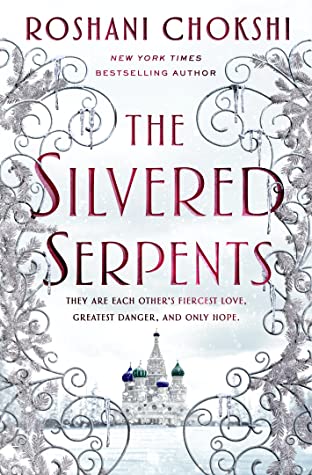 Thanks to Partner NetGalley for the digital ARC of Roshani Chokshi’s The Silvered Serpents in exchange for an honest review. The book will be published on Tuesday, September 22, 2020. ***PROCEED WITH CAUTION: SPOILERS FROM BOOK ONE, THE GILDED WOLVES, APPEAR. Roshani Chokshi’s The Silvered Serpents focuses again on the crew of Séverin as they come back together for another heist. After being driven apart by the loss of one of their own in book one, their trust has been fractured. Séverin is desperate to find The Divine Lyrics, a book that can make him a god, able both to protect his friends and to become impervious to being hurt by them or by their loss. Laila, too, wants to find the book--she believes it’s the only thing that can keep her alive. Enrique is desperate once again to prove himself: he has lost confidence since separating from his friends, unable to make his mark as an academic. And Zofia is ready to quit so she can be with her dying sister . . . until Séverin convinces her otherwise. As in The Gilded Wolves, the strengths here for me are the diversity of the group, who each come from different races, different countries, different classes, and different religions. Their disparate talents and ways of thinking mean that they can each contribute a unique strength to the group--and, of course, their magical talents are different, as well. The world here is one of a series of magical houses, unified in asserting their own superiority but also in competing against each other for new treasures and wealth and prominence, and each of the protagonists wants (or needs) something from the ruling class who runs the houses. There’s a cinematic quality to so many scenes within the novel--I love the different locations that Choskhi imagines so beautifully--and I like each of the characters and the personal challenges each is undergoing, as well. Shifting between the four points of view works well for me. I did wish for more from Séverin’s sections. I empathized with his grief, which has made it difficult for him to interact with his friends the way he used to, but I didn’t completely believe the personality change he underwent, and I wanted more from his chapters, which were my least favorite. I found Laila, Enrique, and Zofia each to be more believable and more nuanced. Overall, Roshani Chokshi’s The Silvered Serpents is a compelling story, a worthy sequel to The Gilded Wolves. |
AuthorI'm Jen Moyers, co-host of the Unabridged Podcast and an English teacher. Archives
July 2021
Categories
All
|
Proudly powered by Weebly
 RSS Feed
RSS Feed